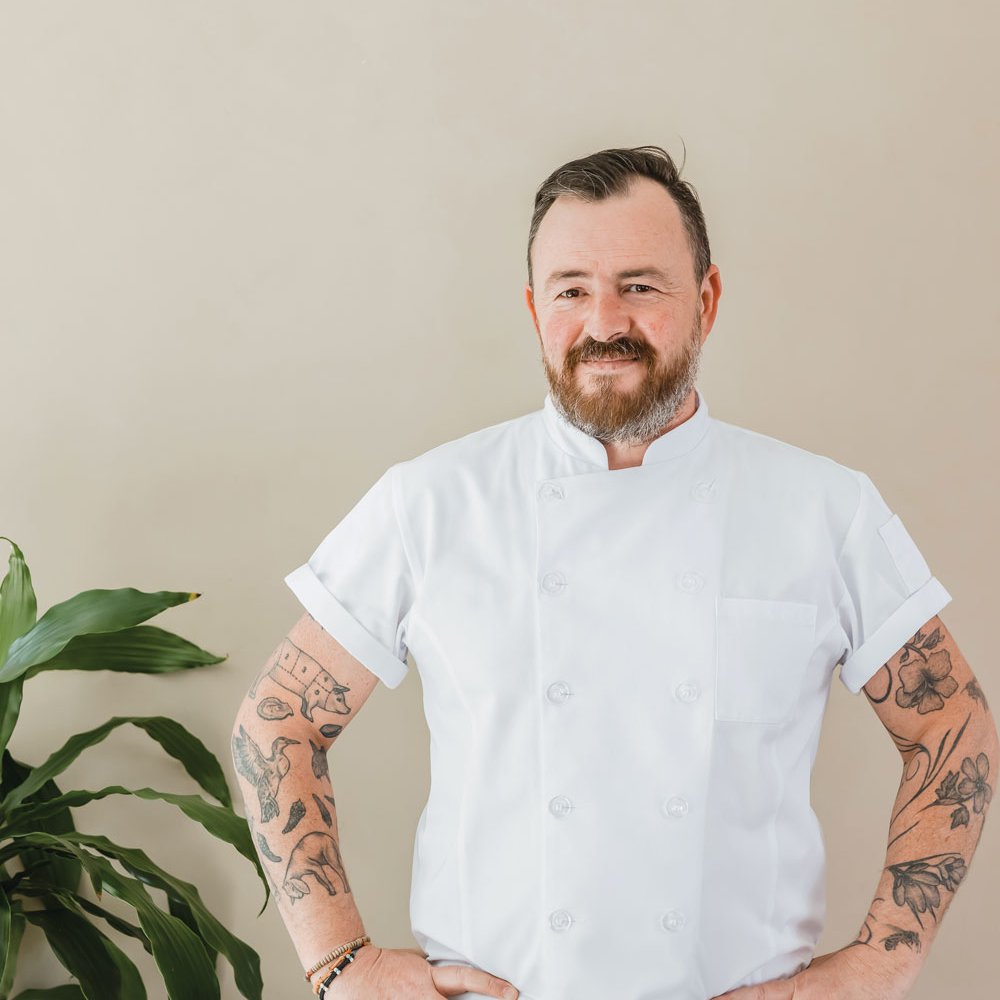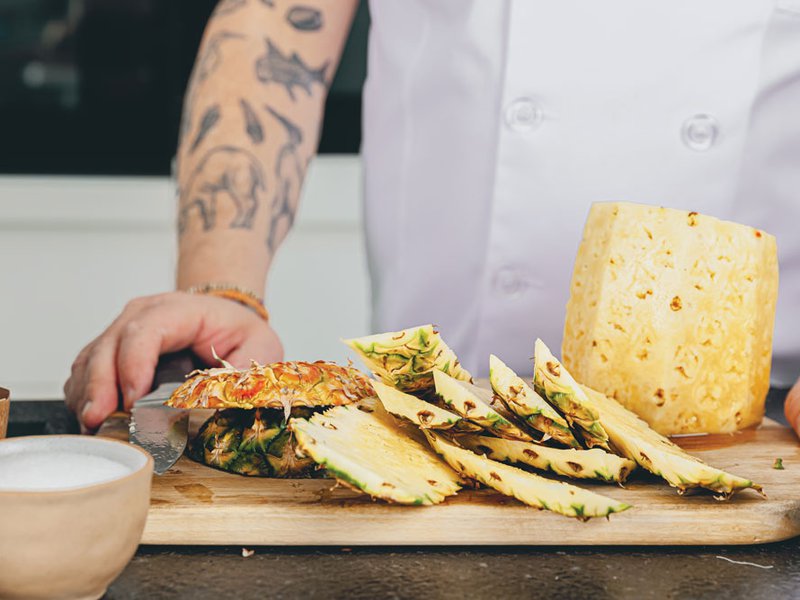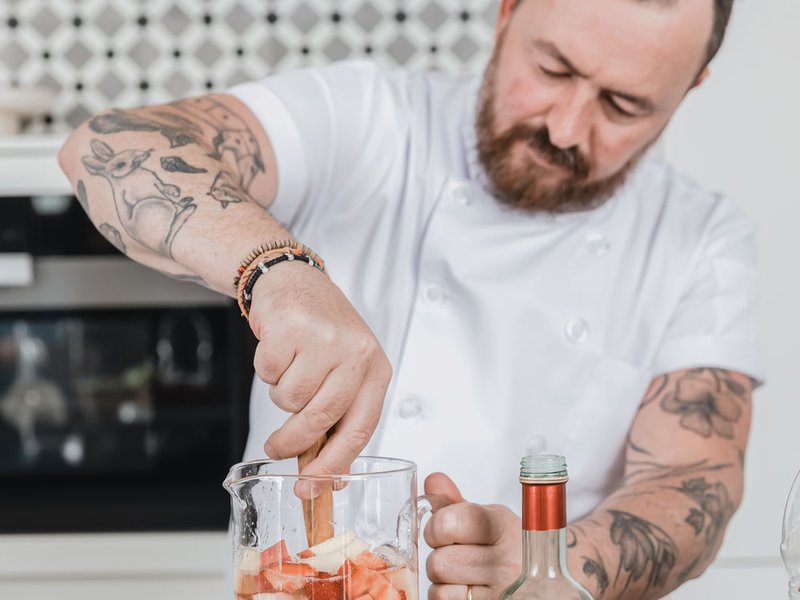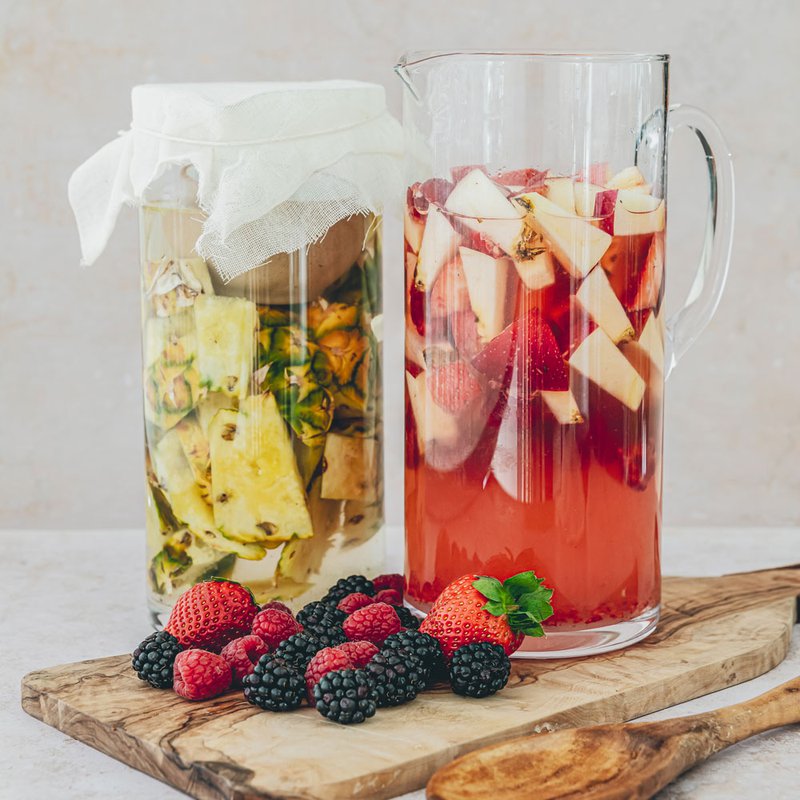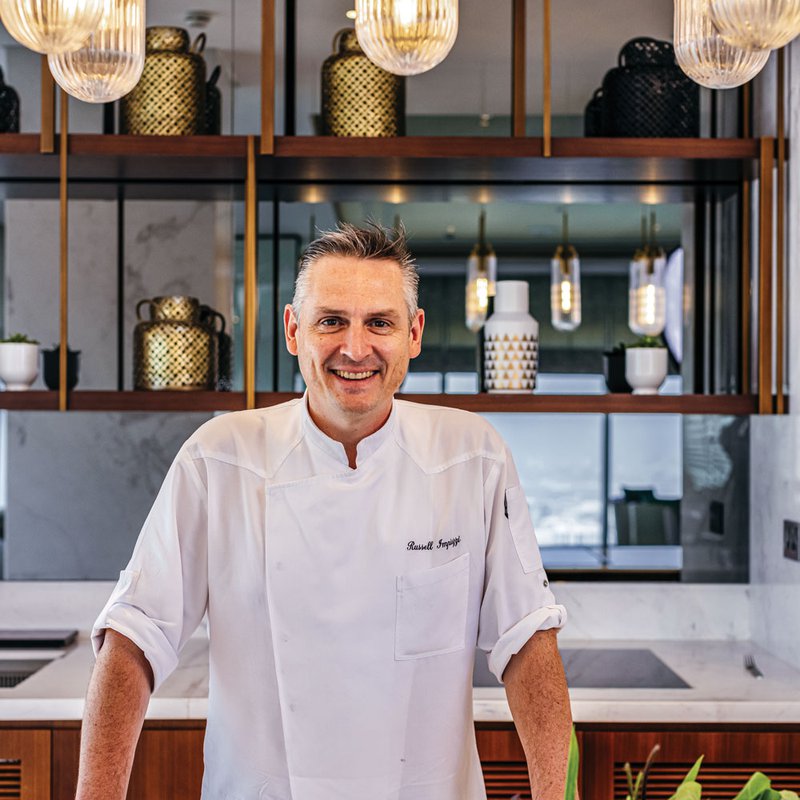Chef Troy Payne talks about traditional methods of cooking and how every ingredient can be repurposed to create something new and delicious
Australian chef Troy Payne was always a bit different, even as a kid. Where other children would bring chips or sweets to school, his lunch box was packed with dolmades and olives. From his grandmother making sponge cake with nothing but two forks instead of a whisk, to his stepfather being a maître d’restaurant at three hat-winning Jacques Reymond in Melbourne, food has always been an intrinsic part of his upbringing.
It’s no surprise then, that this product of English, Yugoslavic and Swiss heritage, who loves Middle Eastern food, wound up in Dubai and is passing on his knowledge of how to respect ingredients.
His father, who graduated cooking school at the age of 60, taught Troy how to fish, hunt and forage when he was not even 10 years old, instilling in him the values of taking only what was needed. He learned how to cook in the wild, using fire, at a young age. He watched one grandmother make her own pickled peppers and jams, while the other made her own chutneys.
He reminisces, “You made sure that you respected everything, and you didn’t waste. And if you did have too much, then you went next door and gave it to the neighbour.”
Troy is fascinated with family and history and says, “I’ve gone back to wherever my family came from and seen the food and the ingredients and how they’re traditionally treated. Yet we stand in kitchens now and press a button on a machine and it does things for us.”
However, Troy certainly knows what he’s doing without machines, having worked in kitchens since he was 14 – falling instantly in love. He pursued this passion, starting as a kitchen porter in small pubs and restaurants. Then he brazenly walked into the best restaurants in Melbourne with a uniform and his own knife and said he was ready to start learning. The confidence worked and Troy wound up working two weeks at a time at amazing restaurants during holidays.
Having learned so much from his family, Troy was appreciative of the knowledge that comes with experience.
“I made sure I found good chefs to learn from and made sure I found kitchens with lots of older chefs instead of walking to a kitchen where the head chefs had two years’ experience. I was working in one kitchen where there was 120 years’ worth of experience. That’s the best place to learn apart from grandparents and family.”
After opening his first restaurant at the age of 24, Troy kept working in Melbourne until he met chef Greg Malouf, who changed Troy’s life. From learning about Middle Eastern food and flavours to landing in the UAE with Greg more than eight years ago, Troy has never felt more at home.
With that, he’s come through on his desire to pass on age-old traditions. He says, “My career is now about education and making sure that young cooks don’t forget. Half of them have never seen a whole fish or a whole rabbit, so it’s making sure that they understand where food comes from. The possibilities are endless with food and our food industry if everybody knows what they’re doing.”
He applied his values wherever he went in his career and even at home. Troy showed his team how to cook vegetable scraps and purée them before spreading out the mixture on dehydration trays to create wraps. Beetroots can be used, he says, to make zero-proof red wine sauces by cooking and blending them with zero-proof sauces to give it more body. “It’s just how creative you can get,” he says.
After a successful career across restaurants in the UAE including the likes of Greg Malouf’s Zahira, Sandersons and most recently, The Pangolin, Troy has struck out on his own – focusing on family and home traditions. Cue his brand: Home x Troy.
The chef says, “I love Dubai. I’ve been here long enough to now be able to say to people: ‘you know what I do so if you want what I do, then you can come and enjoy it’. Home x Troy is anything that I want it to be: whether it’s me cooking on a tuna boat for seven days for 12 people in Oman or whether it’s setting up a a pop-up in the desert.”
He continues with a smile: “When I was young, somebody asked me what’s my dream for food, and I said, ‘I actually believe that one day food could create world peace’. When you sit at a table and you’re eating, you’re not arguing, it’s about sitting and enjoying something together.”
TABLE TALK
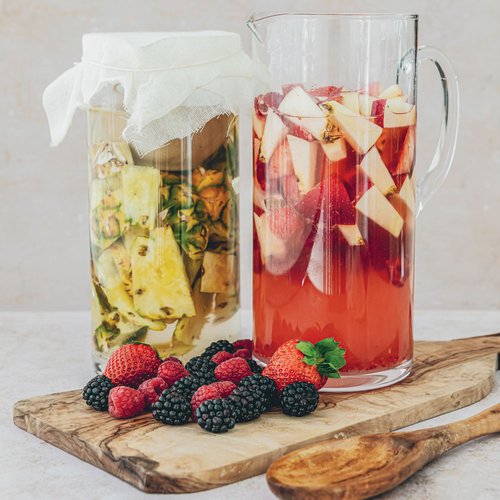
Troy has shared his method for creating vinegars with fruits that might otherwise get thrown away.
If fruits have bruises on them, he says that people usually end up discarding them. “Instead of doing that, we can turn it into something else: vinegar.” From apples to berries to pineapple skins, the opportunities are endless, says Troy. “It’s just a basic form of fermentation and we only need a few ingredients. We need the fruit, which contains sugar, and natural yeast – which is on the skin of most fruit. We need bacteria, which helps produce the vinegar mothers.”
He adds, “This can be done by anybody. There is a science behind it, but it doesn’t require a science degree. The basic idea is to prevent wastage.”
Once the vinegars are ready, he advises removing the fruit pieces, puréeing them, adding flax seeds and spreading on a sheet to create healthy fruity sheets.
